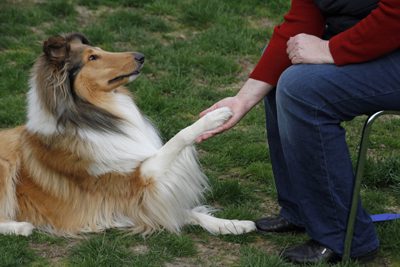 Pet therapy can play an important role in addiction recovery.
Pet therapy can play an important role in addiction recovery.
For a number of people with substance abuse issues, developing a loving relationship with a domestic animal offers a number of benefits.
As more time and energy is expended to support an addiction, managing relationships with friends and family members becomes more challenging for someone who struggles with addiction. Trust is strained or broken if the addicted person makes promises that are not kept, lies, or even steals from loved ones to support their habit. Often, one of the casualties when someone develops an addiction to drugs or alcohol is their sense of self-worth when they realize that they have hurt the people closest to them so deeply
Types of Animal Treatment Program Models
One way in which companion animals may be integrated into a residential program for drug and alcohol treatment is to allow clients to bring their pets with them. This approach lets a person who will be spending time in a facility include their dog or cat in their plans for getting well. Since many pet “parents” are very attached to their animals, having the animals with them means they may be more likely to stay in treatment longer, which increases the likelihood of achieving sobriety over the long term.
Another approach to incorporating pets into the addiction treatment process is to give clients the assignment of caring for a companion animal during their stay at the facility. This exercise teaches the client accountability; they are responsible for caring for something other than themselves.
Pets Offer Unconditional Acceptance
One of the main benefits of pet therapy in recovery is that dogs and cats offer unconditional acceptance. They don’t remember what a client did in the past or judge them for their previous actions. Interacting with a companion animal gives the person in recovery a clean slate.
Pets also respond positively to gestures of affection. They readily show when they like or dislike the way someone interacts with them. Someone who is learning (or re-learning) the skills involved in developing relationships with others can develop them relatively quickly from observing what kinds of interactions are successful when dealing with pets.
Animal Interaction Lowers Stress Levels
One of the goals of drug and alcohol treatment is to teach clients techniques for dealing with stress. The act of petting an animal has been shown to lower stress and reduce blood pressure. It’s a natural remedy for symptoms of anxiety and depression.
Clients in treatment at a residential drug and alcohol treatment center learn more positive ways to deal with the stressors in their lives other than turning to chemicals. Pet therapy is one example of an effective way to manage stress.
Pet Therapy Increases Self-esteem and Builds Confidence
Getting clean is only one component of treating addiction. In order to get (and stay) sober, clients need to do the work of figuring out why they turned to chemicals initially.
With the help of pet therapy, clients can start to repair their damaged self-esteem and build confidence. These factors will benefit them in group therapy sessions when it’s their turn to share their experiences with fellow clients. This type of interaction helps all members of the group to learn from each other and learn to heal from their various underlying hurts.
Increased confidence benefits clients who are meeting with addictions counselors in one-on-one sessions, too. It takes courage to talk about painful events from the past and trust that one will be heard and understood. A client who has increased confidence and higher self-esteem will know that this step, although difficult, is necessary in order to achieve long-term recovery.




